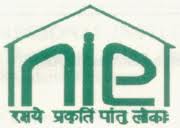/topics/water-management
Water Management
Annual partners' meet, IWMI-Tata water policy program (ITP), Institute of Rural Management, Anand, 28-30 November, 2012
Posted on 21 Oct, 2012 11:22 PMInstitutional intervention in river water management - The study of Yamuna river sub-basin in India - Centre for Good Governance, Hyderabad
Posted on 17 Oct, 2012 08:00 PMThis paper from the Centre for Good Governance highlights the relevance of river water management as an important area for natural resources management in the context of the current deteriorating status of the rivers in India in terms of quality as well as quantity, and a
Kerala and Karnataka's lesser known rainwater harvesting structures
Posted on 16 Oct, 2012 03:09 PMMadakas are one of the fast disappearing traditional rainwater harvesting structures found in the laterite belts of Karnataka and Kerala. They are naturally occuring depressions with high terrain on the three sides where water from the surrounding laterite slopes, mainly runoff from the rains, is accumulated.

India Water Week, Ministry of Water Resources, Vigyan Bhawan, New Delhi and India Exposition Mart Limited, Greater Noida, 8-12 April, 2013
Posted on 12 Oct, 2012 02:36 PMVenue
"Protests rock Cauvery basin as Karnataka releases water to Tamil Nadu in keeping with Supreme Court directive" - Roundup of the week's news (24-30 September 2012)
Posted on 09 Oct, 2012 04:10 PMProtests rock Cauvery basin as Karnataka releases water to Tamil Nadu in keeping with Supreme Court directive
Regional training workshop on factoring environmental flows into integrated water resources management,NIE, SaciWATERs, CIFRI, December 6-11, 2012, Haridwar - Apply by November 15, 2012
Posted on 03 Oct, 2012 10:07 PMOrganizers: National Institute of Ecology (NIE), SaciWATERs, The Central Inland Fisheries Research Institute (CIFRI)
Venue: Gurukul Kangri University,
Haridwar (Uttarakhand)



Objective
The goal of the proposed Training Course is to educate the water resource managers (both researchers and practitioners) about the importance of environmental flows in the broader framework of aquatic ecosystem goods and services, and the approaches and methods for EF assessments.
The specific objective of the training workshop is to bring together researchers in the field of river ecosystems and the water resource managers (from different disciplines) for intensive interaction on all scientific, socio-economic, policy and institutional issues concerning environmental flow and to discuss
the requirements for assessment and implementation of the EF in water resource management projects. Another objective is to develop an outline of the course material on the subject that is appropriate for the region. The training course will include interactive discussion besides a series of lectures. Resource material will be provided.
Spring clusters of Doon valley: Extensive modification of the environment has taken place due to human intervention in the Doons
Posted on 01 Oct, 2012 11:11 AMDoon valley is known for its spring clusters. The mountain flanks of the Doon valley have a chain of swamps. Extensive aquifers of Doon spring clusters provide significant/sufficient storage of water. These spring clusters have hydrological effects such as promoting ground water recharge, intercepting rain and storing rain water.
Aquifer systems of India - Atlas compiled by the Central Ground Water Board (2012)
Posted on 29 Sep, 2012 07:26 PMThe Central Ground Water Board (CGWB) under the Ministry of Water Resources has released a publication entitled “Aquifer systems of India” apart from aquifer atlas for six states viz. Kerala, Tamil Nadu, Karnataka, Chhattisgarh, Himachal Pradesh and Meghalaya.
"Kund - Etijyomoyer jaler etijyo" - Bengali translation of Anupam Mishra’s book by Nirupama Adhikari, about the kunds of Rajasthan
Posted on 19 Sep, 2012 03:20 PMRainwater harvesting is the new buzzword for a world wracked by climate change and increasingly limited stores of fresh water. But in rain-starved Rajasthan, communities have been harvesting water for ages.
Dr Anupam Mishra’s booklet , “Kund - Etijyomoyer jaler etijyo”, a Bengali translation of the original in Hindi, describes the ideas and principles that lie behind this legacy of conserving water in an environment bereft of this precious natural resource.










